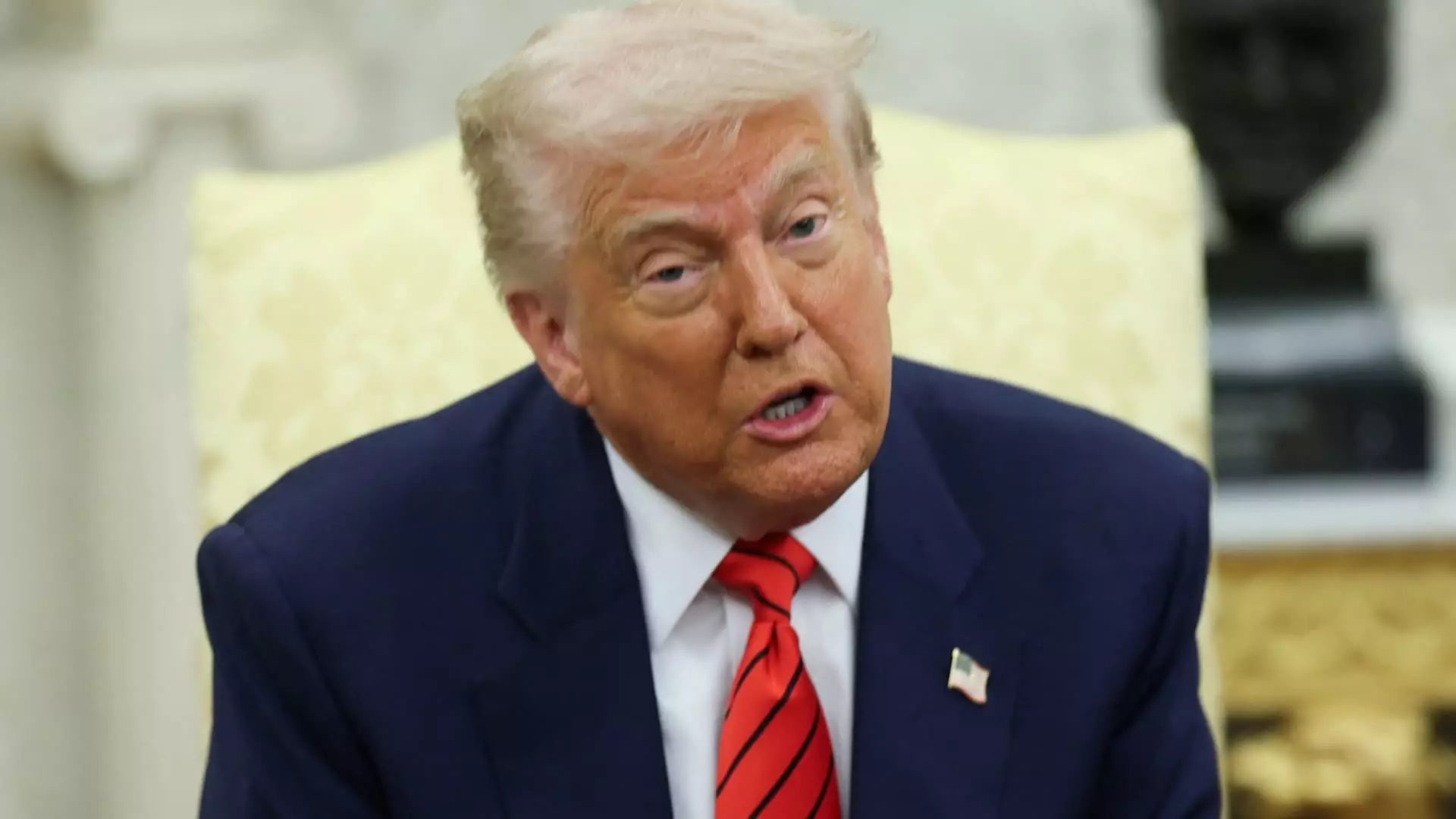President Trump’s recent statements regarding trade agreements have left many baffled and concerned about the trajectory of the U.S. economy. During a meeting with Canadian Prime Minister Mark Carney, he abruptly claimed that the U.S. does not need to formally sign trade deals with other nations—a statement that starkly contradicts prior assurances from his administration. This unpredictability not only adds confusion within the government but also has real repercussions in global markets and among U.S. businesses that rely on stability for planning and investment.
The comment comes on the heels of a high-profile effort to prioritize trade negotiations. How can an administration that once touted trade agreements as a cornerstone of its strategy now declare such deals unimportant? The back-and-forth nature of President Trump’s trade rhetoric demonstrates an alarming inconsistency that could initiate a crisis of confidence among our trading partners.
High Stakes for Economic Growth
Trade deals are often the lifeblood of economic growth, serving as bridges between nations that foster investment, innovation, and job creation. When Trump dismissed the imperative of signing deals, he displayed a blatant disregard for the consequences that such a statement could impose on the economy. In reality, countries around the world are looking to assert their own economic needs, and by adopting a ‘take-it-or-leave-it’ approach, the Trump administration risks isolating the U.S. from pivotal partnerships.
Investors are already skittish, reacting negatively to Trump’s unclear trade policies as reflected by the downward shift in the stock market following his comments. If the president fails to establish formal agreements, U.S. businesses may find themselves increasingly at the mercy of unpredictable tariffs and trade barriers, rather than benefiting from the sort of stability that well-crafted deals could provide.
Miscommunication within the White House
Trump’s caustic critique of his own administration’s messaging regarding trade talks only adds to the chaotic atmosphere, showcasing an alarming lack of coherence within the White House. As Trump publicly attributed his frustration to his advisers, such as Treasury Secretary Scott Bessent, it underscores deeper problems with internal communication and strategic clarity. How effective can an administration be when the head of it openly expresses dissatisfaction with the messaging of his economic team?
Such a disjointed approach not only leaves the public feeling unsettled but also signals to foreign governments that the U.S. lacks a unified strategy. Allies and adversaries alike are bound to question the reliability of any potential agreements and whether such deals could hold any weight in the long run.
Luxury Store Analogy: Understanding the U.S. Market
Trump’s intriguing analogy of the U.S. as a “super luxury store” is more perplexing than illuminating. While it aims to project strength, it invokes questions about who truly stands to benefit from this perspective. If the U.S. sees itself as an exclusive purveyor of goods, one must wonder how accessible these goods might be to the average consumer amid tightening trade policies. A luxury store exists to cater to the affluent, yet mainstream American families depend on a diverse array of products that come from international markets. How does this luxury persona reconcile with the immediate needs of hardworking Americans who rely on affordable goods?
This perspective further alienates essential trade partners and places unnecessary strain on the dynamics of international relations. Rather than engaging in mutually beneficial discussions, the U.S. risks fostering an ‘us vs. them’ mentality, which could lead to further retaliation from other economies seeking to protect their own interests.
Future of Bilateral Relations
Trump’s comments about potential deals with nations like India, South Korea, and Japan signify an attempt to save face, but they also highlight a glaring contradiction. If the administration is, in fact, pursuing these deals, why the reluctance to formalize them? Nations around the world are attentive to the shifting landscape of U.S. trade policy, and uncertainty could lead them to seek alternative partnerships elsewhere.
The notion of a ‘deal drought’ could inhibit America’s leadership role in shaping future trade norms, undermining its influence on global markets. History is replete with examples where a lack of engagement led to long-term consequences, and the current administration should take heed of that. With trade wars brewing and major economies diversifying their alliances, the U.S. risks becoming an economic bystander rather than a key player.
In a world increasingly shaped by interdependence, dismissing trade agreements is not merely a political choice; it threatens to erode American prosperity at its roots. The ramifications of Trump’s contradictory trade rhetoric could be felt for generations if not addressed with urgency and clarity.

